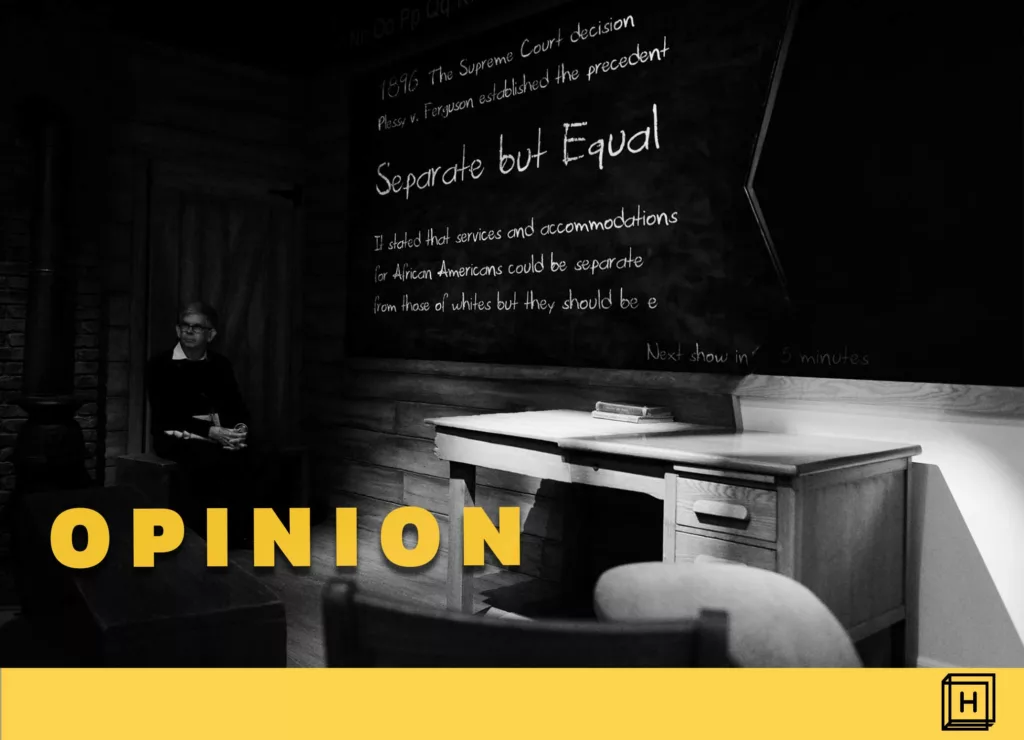[ad_1]
Get important education news and analysis delivered straight to your inbox
Students are once again in the crosshairs of our nation’s political culture, following the College Board’s decision to buckle under political pressure and strip their Advanced Placement African-American studies course of essential topics for what is supposed to be a rigorous, college-level course.
The revised course framework excludes or makes optional such topics as Black feminism, reparation studies, intersectionality, the queer experience and the Black Lives Matter movement. Optional topics do not appear on AP exams, and AP coursework teaches to the test. How can the study of Black Lives Matter, one of the most impactful civil rights movements of the twenty-first century, which sparked protests around the world, be optional when studying the African American experience?
The head of the College Board, David Coleman, asserted that these changes were based on feedback from pilot schools that the texts addressing these topics were “quite dense,” so the College Board opted to focus on other sources and topics. Surely, the College Board and its team of experts could have changed the texts without downgrading the topics if they had wanted to do so.
Exclusion of essential topics presents an inauthentic, sanitized version of African American studies in order to make the course palatable for white politicians like Gov. Ron DeSantis, who banned the course — before the revisions — in Florida last month.
Related: COLUMN: Pop quiz: What state just banned an AP African American studies course?
While the College Board’s failure to stand firm in offering a representative and inclusive African American studies course is disheartening, we shouldn’t be surprised. Similar sanitization runs rampant in its AP American history course.
For example, in a practice item for the AP American history exam, the reference text from “The American Pageant” states that “the northward migration of African-Americans accelerated after the war, thanks to the advent of the mechanical cotton-picker, an invention whose impact rivaled that of Eli Whitney’s cotton gin. … Overnight the Cotton South’s historic need for cheap labor disappeared.”
When we allow toxic culture wars and the politicians who fuel them to infiltrate our classrooms, we fail our students and the educational process.
In this context for a test question, the mechanical cotton-picker is cited as the main reason for the Great Migration of African American people. That is a sanitized, amnesia-inflicted account of one of America’s most important movements of people.
The driving force for the Great Migration was to obtain freedom from mass racial violence —including lynchings — and the Jim Crow laws that underpinned it. Naming the mechanical cotton-picker as the cause for the Great Migration tells the story of African Americans through a “whitewashed” perspective.
Misrepresentations of African Americans like this example in the AP American history coursework are insidious and destructive; now this harmful sanitizing has extended to a course that is supposed to feature the contributions and experiences of African Americans. In the College Board’s hands, even African American studies has become revised through the lens of white dominant culture.
Related: OPINION: Growing up in the South, I had no chance to learn my own heritage and culture
Excluding or treating essential components of African American studies as optional is negligent education. It’s akin to teaching students about mass without gravity, about photosynthesis without the sun or about elements without particles.
The debate about the inclusion of these topics is not about what gets taught in kindergarten. We are talking about high school students who are about to apply to college. Offering students misrepresentative American history coursework and supplementing that with a diluted African American studies course perpetuates ignorance. This ignorance helps breed the societal ills from which we continue to suffer.
When we allow toxic culture wars and the politicians who fuel them to infiltrate our classrooms, we fail our students and the educational process. Our students deserve better than a whitewashed, inaccurate account of their nation’s history and a diluted understanding of African American studies. They deserve content that is full of clarity and free from discrimination, and that is built on the foundation of fact, not selective memory.
Ultimately, it is when we have a common understanding of our nation’s past and present that we can truly build a shared vision for its future.
Nicole Tucker-Smith is founder and CEO of Lessoncast and an adjunct faculty member for Johns Hopkins University School of Education.
This story about AP African-American studies was produced by The Hechinger Report, a nonprofit, independent news organization focused on inequality and innovation in education. Sign up for Hechinger’s newsletter.
[ad_2]
Source link
Meet Our Successful Graduates: Learn how our courses have propelled graduates into rewarding
careers. Explore their success stories here!
Discover More About Your Future: Interested in advancing your teaching career? Explore our
IPGCE, MA, and QTS courses today!

Explore Our Courses: Ready to take the next
step in your education journey? View our
comprehensive course offerings now!

